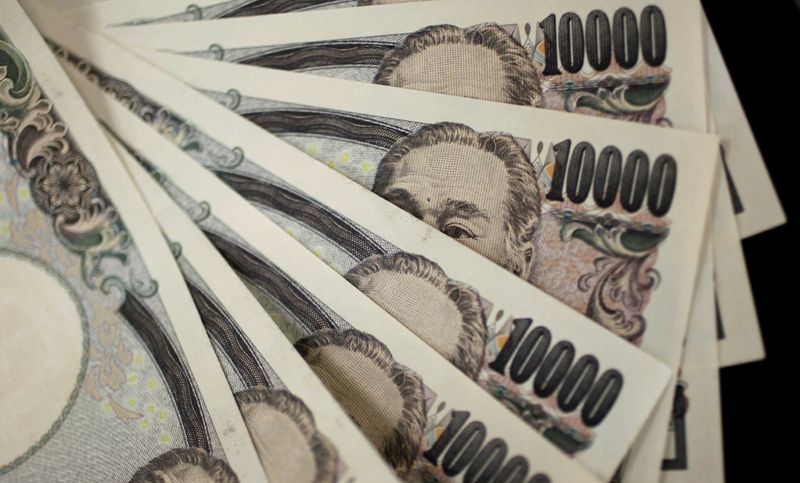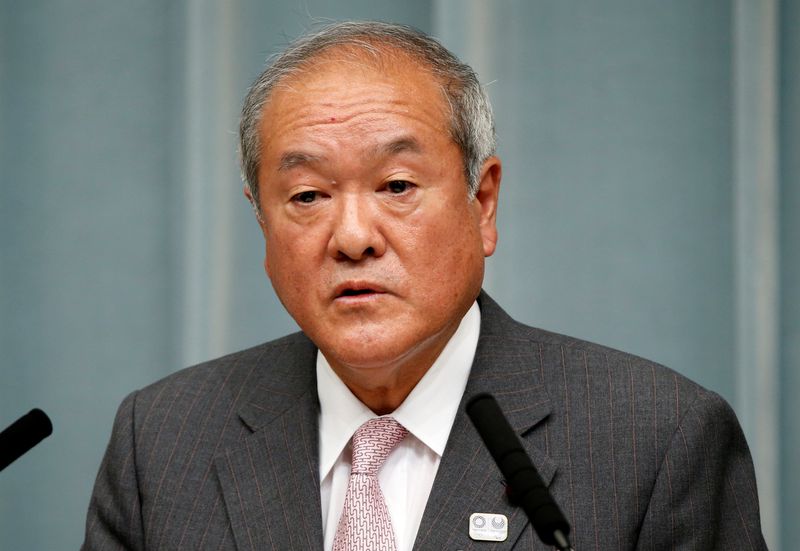By Leika Kihara
TOKYO (Reuters) -Japan explained to its G7 counterparts the yen's recent "somewhat rapid" declines, finance minister Shunichi Suzuki said on Thursday, underscoring Tokyo's growing alarm over the currency's sharp fall to a two-decade low against the dollar.
Suzuki did not comment on how the G7 finance leaders responded, saying only that the meeting in Washington, D.C., focused on discussions over the global economy and Russia's invasion of Ukraine rather than exchange-rate moves.
In a statement issued after their meeting, the leaders said they were closely monitoring global financial markets that have been "volatile," but made no direct mention of exchange rates.
Suzuki said the G7 likely stuck to its agreement that markets ought to determine currency rates, that the group will closely coordinate on currency moves, and that excessive and disorderly exchange-rate moves would hurt growth.
"I believe the G7's basic thinking on exchange rates remains intact," Suzuki told reporters after the meeting with finance leaders of the Group of Seven advanced economies, held on the sidelines of the International Monetary Fund (IMF) gatherings.
Markets are focusing on Suzuki's meeting with U.S. Treasury Secretary Janet Yellen expected later this week.
The yen slightly extended losses from earlier in the day, falling to 128.63 yen per dollar just after the remarks, but was still off a 20-year low of 129.40 hit on Wednesday.
The currency has plunged against the dollar, with the Bank of Japan (BOJ) continuing to defend its ultra-low rate policy in contrast with heightening chances of aggressive rate hikes by the U.S. Federal Reserve.
Investors believe the yen has even further to fall, with most betting that even a government intervention wouldn't be enough to turn around the momentum.
Highlighting the difficulty Tokyo may face if it sought global consent to intervene, a senior IMF official told Reuters the yen's recent declines have been driven by fundamentals with no sign of disorderly exchange-rate moves.
"The finance ministry will find it hard to intervene and probably continue jawboning markets," said Masahiro Ichikawa, chief market strategist at Sumitomo Mitsui (NYSE:SMFG) DS Asset Management.
"The BOJ isn't in charge of currency policy, so will focus on achieving its price goal by maintaining a loose monetary policy."

BOJ Governor Haruhiko Kuroda, who also attended the G7 meeting, said excessive exchange-rate volatility could affect business activity.
"The BOJ will carefully watch how currency moves could affect Japan's economy and prices," he said.
